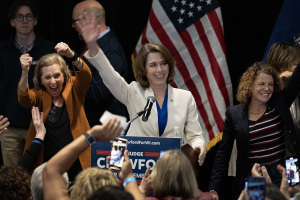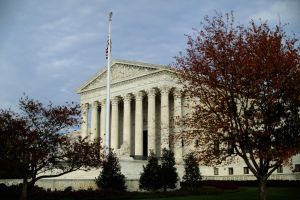Growing Sharia Finance in India a Boon or Bane?
With hundreds of listed Sharia-compliant companies in India's stock exchanges, Islamic investments from Asia, the Gulf and Europe may soon begin to flood the Indian market. This will boost India's economy, but also intensify security concerns.
Sharia or Islamic law prohibits Muslims from investing in companies that earn profits from interest or the sale of goods or services deemed unlawful in the Islamic faith, such as alcohol and pork. Sharia-compliant companies, screened by Islamic finance monitors, comply with Islamic canonical law to allow devout Muslims to invest.
Though known as "ethical investing," Sharia finance raises eyebrows among security agencies.
"Zaqat (donations for Islamic charity) money is exploited by charities connected with the Jihadis. The Sharia system will boost this process," a former chief of India's Intelligence Bureau, Maloy Krishna Dhar, told The Christian Post in an email.
Dhar's fear is not unfounded. Estimated to be worth over $2.7 trillion globally, Sharia-compliant investment is seen as a security threat also by the United States.
According to diplomatic cables recently released by WikiLeaks, Britain's support for Sharia banking raised concerns in Washington that London could become a center of terrorist funding, reported Press Trust of India (PTI) on March 16.
"The State Department was so concerned that it ordered US diplomats in London to compile a report on the activities of Sharia banks in Britain. A cable, sent from the office of Condoleezza Rice, the then Secretary of State in June 2006, requested information on Islamic financial institutions' vulnerability to exploitation for illicit or terrorist purposes, such as structuring accounts to mask illicit activity or money laundering'," PTI reported.
"The US had particular suspicions that 'charitable donations', which Islamic banks are obliged to make to comply with Sharia, could be funnelled to al-Qaeda sympathizers," it added.
Unorganized Sharia investments arrived in India especially after 9/11 as many rich Muslim investors began to pull out of Europe and North America while Islamic nations saw an increase in financial wealth due to rising oil prices.
Formally starting with Sharia tolerant mutual and venture capital funds in 2009, Islamic investments showed constant growth in India. The National Stock Exchange (NSE) and the Bombay Stock Exchange (BSE) – among the five largest exchanges in the world – now have around 800 listed Sharia-compliant companies, and the number is expected to grow.
Dr. Asghar Ali Engineer, a Mumbai-based renowned Muslim scholar who promotes secularism and democracy, thinks there is nothing to worry about the growth of Sharia investments in India. "This may increase orthodoxy, but not extremist or terrorism," he told The Christian Post in a phone interview.
Members of India's Sharia Board, the final authority in the Sharia certification process, include scholars from conservative Islamic institutions such as the Islamic Fiqh Academy (of India) and the Darul Uloom Deoband seminary.
India, home to over 140 million Muslims, is a promising destination for Muslim investors given the country's fast growing economy and its prospects of becoming one of the two largest economies of the world in the next few decades.
Last month, the high court of the southern state of Kerala dismissed petitions challenging the government sanction for starting a nonbanking finance company based on the Sharia, paving the way for establishment of even Islamic banks in India. The petitioners had challenged that the government was acting against the policy of secularism, but the court did not agree. Now, the Reserve Bank of India (RBI) is seeking government approval to allow Turkey's Bank Asya to offer Sharia-compliant lending in the country, Economic Times daily reported on Tuesday.
In recent years, certain Muslim groups in Kerala have come under the scanner of security agencies. In July 2010, alleged members of an Islamist party, the Popular Front of India (PFI), sliced off a Christian professor's hand for supposedly insulting Muhammad. The local media also reported that at least 14 "Taliban-styled" Sharia courts were operating in the state, one of which had issued a decree against the professor. India's anti-terror National Investigation Agency (NIA) is probing terrorism charges on the PFI.
Dhar, former joint director of the Intelligence Bureau, has another concern.
"India is a constitutionally secular country. India's Reserve Bank of India controls the banking system which is run on the basis of internationally accepted fiscal policies. In India there is no need for Sharia banking system or banking systems for Hindu, Buddhist, Sikh and Jain [communities]," he said.
Dhar added that by permitting Sharia banking system, "Indian ruling cliques are encouraging communal divide of society."
"We, in India, are already living together separately. This step will widen the gap leading to communal polarisation," he warned.
While the inflow of Islamic money will continue to rise and invoke mixed responses from the Indian society, it will increase the burden of intelligence agencies which will need to gear up to ensure that profits are not siphoned off to fund Islamist groups in India or abroad.





























